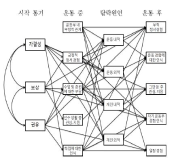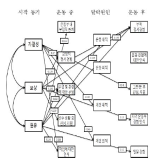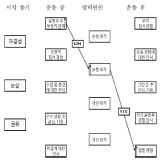Purpose This study seeks to explore the process where drop-out elite athletes collect their life skills obtained during their sports career and transfer them to their daily lives. Methods An open-ended questionnaire survey was conducted on a total of ninety retired elite athletes and the responses were analyzed. Based on the results of inductive analysis, five subjects were selected for a follow-up in-depth interview. The responses to the open-ended questionnaire were analyzed by the inductive content analysis method and the results from in-depth interviews by the deductive content analysis method. Results A total of 478 life skills were collected from the drop-out elite athletes and structuralized into four general categories: psychological skill, social skill, self-management skill, and goal-setting skill. The results of this study have revealed that life skills positively transferred to their future courses of lives and daily lives. Conclusion It is believed that the results of this study will be helpful to understanding the concept of sports life skills, studying the possibility of transfer, and provide the basic data for helping drop-out elite athletes with re-socialization and positive adaptation.

The purpose of this study is to explore the drop-out process of student-athletes and propose valuable policy ideas related to interscholastic sports. For this purpose, we surveyed 560 middle and high school drop-out student athlete's in 13 areas and finally 400 completed surveys were used for the study. To set the scales used for the study and test the reliability and validity of the scales, factor-analyses, Cronbach's alpha, and interfactor correlations were conducted using SPSS. For the main test, the paths analyses were carried out with AMOS program. As a result, we found two paths which had major effects on the drop-out process of student-athletes, self-efficacy path at the point of starting athletic career and negative relation path during athletic experiences. Based on these results, the following policy ideas were proposed. First, student-athletes should be able to join and leave athletic teams voluntarily. Second, the comfortable environments were provided to promote student-athletes' positive emotion toward athletic teams.






PURPOSE This study aimed to explore the re-socialization process of college soccer players who rejoin college soccer clubs after dropping out. METHODS A case study approach was employed, and participants were selected using the snowball sampling method. Data were collected through in-depth interviews, participant observation, and literature reviews. The authenticity of the data was validated through triangulation, member checking, and peer debriefing. All research procedures were conducted following approval from the institutional review board. RESULTS The study revealed several key findings. First, participants faced numerous challenges during the re-socialization process into sports, including interpersonal, academic, and emotional difficulties. Second, distinctive features of the re-socialization process emerged, including the determination and effort required for adapting to university life, support from socialization agents within the university, and rapid re-socialization following dropout. Third, experiences within collegiate soccer clubs indicated low barriers to entry for former athletes, academic success through complementary relationships, a hierarchical culture familiar to student-athletes, and enhanced satisfaction in interpersonal relationships and a sense of belonging. CONCLUSIONS This study underscores the importance of institutional support that enables college athletes to participate in sports clubs, facilitating the successful re-socialization of athletes who have dropped out.